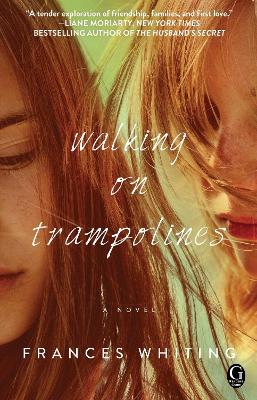Reviewed by meowstina on
This book is less of a tale of friendship and more of the story of Tallulah’s personal growth and journey in life. For some reason I was surprised at how real and lively and, well, not-boring the narrative voice reads. Lulu’s personality really shines through, and I enjoyed reading from her perspective.
The book is split into three parts, each section focusing on a different part of Lulu’s life and relating it back to the present, where she has done something shocking and must deal with the consequences. Her reasoning for committing this act doesn’t really make sense to me, but I decided to suspend my disbelief and see where it lead. While the first two parts of the book mostly discuss Lulu and Annabelle’s past friendship, they also explore Lulu’s life after their fallout. Her relationship with her boss is just as compelling as her relationship with Annabelle, and a bit kinder too. Annabelle is outgoing and somewhat damaged from her unusual home life, so when they were children and teenagers Lulu tended to be more reserved, and more willing to go along with Annabelle’s antics. This is also true of Lulu’s relationship with her high school boyfriend (who I didn’t fall for from the start). You can see this reflected in her current life as well, because even after time has passed, she’s still almost obsessive about Annabelle and allows it to affect her presently. It sounds like an annoying scenario when I think back on it, but while reading I wasn’t very annoyed, which is probably a testament to the writing and characterization. I often questioned and didn’t understand Lulu’s motives, but it didn’t turn into full blown anger and frustration.
I don’t quite see the full purpose of the third part of the book. It’s there to allow for Lulu’s character development, but it’s kind of drawn out. I don’t think it needs to be quite as long and full as it is, and it’s not as engaging as the rest of the book. I also don’t see the point of an event near the end of the book (plus a few before that), but alas.
For the most part this is an interesting novel about a girl’s journey of finding her voice and purpose. I like the liveliness of Lulu’s narrative voice, even though it could be somewhat frustrating when she doesn’t use it with other characters. Not everything in the third part of the book seems entirely necessary, but I enjoyed reading the rest of the book.
Reading updates
- Started reading
- 20 January, 2015: Finished reading
- 20 January, 2015: Reviewed
